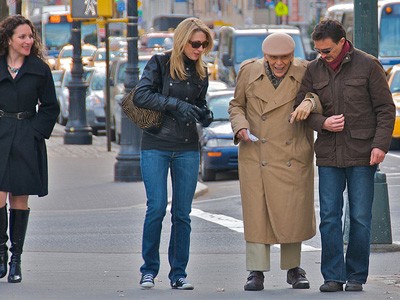Compassion as an antidote to depression

Different types of depression have different causes. Depending on those causes and the severity of the depression, generating compassion can benefit us to a greater or lesser extent. The suggestions below are suitable for someone with mild depression. A person suffering from clinical depression or depression due to chemical imbalance in the brain will need other types of treatment.
As with low self-esteem, when we suffer from depression, the mind tends to focus negatively and unrealistically on ME—although life is not all about ME, the depressed mind certainly feels like it is: “I’m unlovable.” “I’m hopeless.” “I can’t do anything right.” Although the depression may seem to be a feeling, if we look closer, there is often a litany of self-critical thoughts causing it. We lose our energy, we become depressed and then, to top it all, we often get angry with ourselves for being depressed!
Studies have shown that people who care for someone or something outside of themselves have more energy for life and tend to suffer less from depression. For example, older people who take care of plants are happier than those who don’t. Caring for plants or pets lifts our spirits because we think, “Something else that is alive depends on me. I am useful and needed because my actions have a good effect on my environment and those in it. My life has meaning and purpose: I can protect and encourage life.” Similarly, it has been found that people who have pets suffer less from the loneliness related to depression. Their pets depend on them and express affection to them. It’s hard to resist the affection of a puppy or a kitten.
When we’re depressed, one of the last things we may want to do is help someone else. We just don’t have the energy or the inclination. Instead we would like sympathy from others or we just want to be left alone. But if we want to get out of our depression, we need to extend our mental horizon by doing activities that encourage us to feel affection and care for others. These emotions, in turn, help us to feel good about ourselves.
The depression and general feeling of being lost that I experienced in university lessened greatly when I started doing volunteer work in my local community, tutoring a little girl in reading. A friend of mine really blossomed when she got involved in the prison work they do at Sravasti Abbey. Another friend, Sarah, got a tiny dog just before she was diagnosed with breast cancer. This dog sat on her lap during chemo and followed her everywhere. Sarah, in turn, cared for the little dog with so much affection. I’m sure that the love her friend and this dog shared was a strong contributing factor to her recovery. When we are emotionally connected to others and actively engage in doing something for them we feel better. In short, reaching out to others improves our own state of mind.
Reflection: Cultivate a nurturing relationship
Would you like to have a nurturing relationship with another person, an animal or even a plant? Consider what you could do to bring this about, for example, you may want to volunteer at a school, at a facility working with vulnerable people or at an animal shelter—a quick Internet search should reveal volunteer opportunities in your area. If it fits in with your lifestyle and desires, you could adopt a pet, care for an elderly neighbor, or coach the local school’s sports team. You could get a plant or plant a garden. Put yourself in situations in which you have the opportunity to nurture, to really connect with the caring part of you that revels in helping others.
Venerable Thubten Chodron
Venerable Chodron emphasizes the practical application of Buddha’s teachings in our daily lives and is especially skilled at explaining them in ways easily understood and practiced by Westerners. She is well known for her warm, humorous, and lucid teachings. She was ordained as a Buddhist nun in 1977 by Kyabje Ling Rinpoche in Dharamsala, India, and in 1986 she received bhikshuni (full) ordination in Taiwan. Read her full bio.


